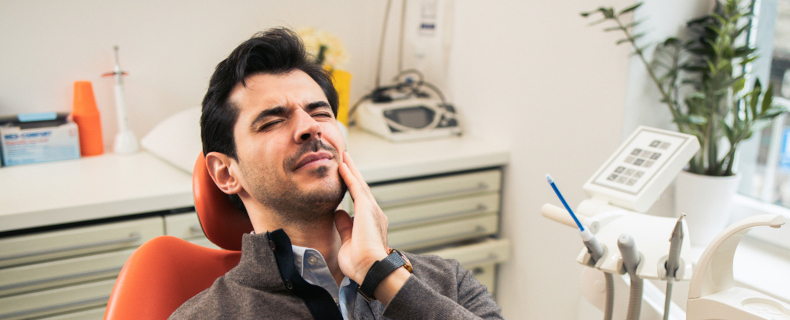
San Francisco and Marin CA
Toothaches are the worst. They come at an unsuspecting time with throbbing pain or a persistent dull ache. Toothaches are commonly associated with a bad tooth, although teeth can hurt for a variety of other reasons that may be less serious. Neglecting dental pain often leads to pain worsening, which could result in the need for emergency dental care. Today on the blog, our emergency dentists in Marin at Glen Park Dental explain how a bad tooth could be dangerous to your health and what you should do if you experience a toothache out of nowhere.
What is an abscessed tooth and what causes it?
An abscessed tooth is an active infection from bacteria that reaches the tooth’s inner chamber where the nerve and blood supply, known as pulp, are located. Oral bacteria can reach the tooth’s chamber from a cracked or broken tooth, or from decay, which is caused by neglecting your teeth by not brushing and flossing regularly. Once a tooth is abscessed, the only ways to solve the problem is by an extraction, which is only recommended if the majority of the tooth is damaged or with a root canal procedure that cleans out the infection and pulp, and then sealing the tooth’s chamber and adding a crown.
Important facts about dental abscesses:
- An abscess usually develops due to poor oral health or an injury to a tooth that exposes the tooth’s pulp.
- Abscesses can form quickly, leading to throbbing pain or may not result in pain at all.
- There are two types of abscesses: a periodontal abscess develops between the gum and the tooth’s root. A periapical abscess is when the infection develops at the tip of the tooth’s root.
How to tell if you have an abscess
In many cases, an abscess results in severe pain that is incessant, meaning no pain relievers provide any relief. But other symptoms of an abscessed tooth may include facial swelling, or the affected area may feel warm to the touch. In some instances, puss may ooze from the infection site or a pustule, like a pimple, forms along the gum near the abscessed tooth. If you notice any of these symptoms, you should see your Marin emergency dentist right away. However, it is possible to have an abscess that is atypical or that only seems to cause discomfort intermittently, meaning not all the time. This is why going to the dentist regularly is essential so that problems like dental abscesses can be caught early and treated before they cause significant discomfort.
What if my tooth stops hurting?
If the pain in your tooth goes away, that doesn’t mean the infection went away. Instead, the infection could have destroyed the tooth’s pulp, which includes the dental nerve. Meanwhile, the infection also may be filtering through your bloodstream, affecting other areas of your body and possibly leading to sepsis—a life-threatening condition that can shut down vital organs. Therefore, just because your tooth stops hurting doesn’t mean that you are out of the danger zone.
Emergency dentist in Marin and the Bay Area
Experiencing a throbbing toothache out of the blue can be frustrating, especially when there are no self-care options to help. We recommend visiting the dentist regularly to hopefully avoid these unexpected tooth pains, although emergencies still occur. If you need emergency dental care in the Bay Area, contact Glen Park Dental by calling (415) 585-1500.


